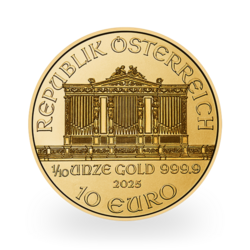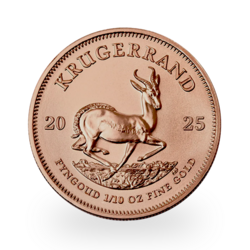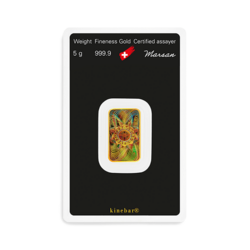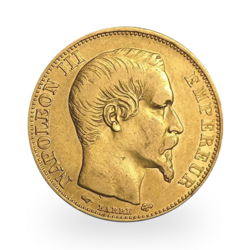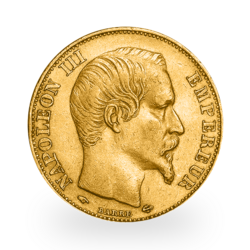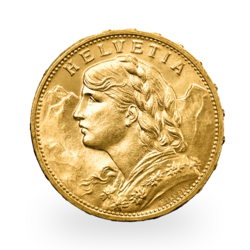Since there is a lot of talk about a potential gold re evaluation following an international monetary reset, I wanted to interview David Morgan, renowned silver market analyst, in order to have his views on a couple of topics, including silver evolution, silver manipulation, and the potential price of silver after a financial reset. Read his answers below :
Fabrice Drouin Ristori : Mr. Morgan, thank you for this interview. You’ve specialized in analyzing the silver price for a long time, and understanding how and why the price of silver evolves with such volatility takes time and research. Let’s start with the basics : Could you give us an idea of the size of the annual worldwide production of physical silver ?
David Morgan : Yes, the total supply is roughly one billion ounces annually. Approximately 800 million ounces mined, and 200 million ounces from recycling.
FDR : A lot of silver paper contracts are exchanged everyday on different markets. According to your knowledge, how many ounces of silver are exchanged everyday on a worldwide basis (paper + physical) and, if you agree with this concept, how many silver paper claims exist for each ounce of physical silver in existence ?
David Morgan : So here we have the global physical market for silver trading in the 80M-90M ounces per month range and yet the COMEX paper silver market in the month of May traded 14.4 BILLION ounces of paper silver.
That is a ratio of 160-1 paper vs physical ounces of silver trading!
But that outrageous ratio does not reflect the true picture as the COMEX is just one of many paper derivative silver markets. What would it look like if we included the LBMA, the Silver ETF's, silver pooled certificate programs, silver swaps and all other paper silver exchanges, not to mention the over-the-counter markets (OTC) that report to no one!
FDR : How would you explain the correction of the silver price since 2011 ? We have published a lot of articles about the gold and silver manipulation on Goldbroker.com and, according to my own research, one can’t understand the evolution of gold and silver prices for the past two years without being aware of the manipulation of both metals. So, do you think the correction of the past two years is in part due to the manipulation, along with other factors ?
David Morgan : Markets move on buying and selling pressure—looking at the charts is was clear excellent support was at $26 US for silver and $1550 US for gold. The commercial interests (banks) all use charts and are very aware of how markets move. A huge amount of sales took place at those levels. This is called « running the stops » by the establishment, but it is market manipulation pure and simple.
It broke the psychology of the market, and the market has not come back enough to bring about investor confidence yet.
FDR : Do you think that China is part of this manipulation process ? Or is China just taking advantage of artificial low prices to buy up as much physical silver as they can, while Western countries are busy trying to protect the dollar ?
David Morgan : This is a very tough question- I think China could have something to do with the price because they have so much leverage in the financial markets due to the amount of US debt they hold. This is just conjecture on my part, I really do not know it for a fact.
FDR : In view of the industrial and investment demand for physical silver, plus the fact that investors are focusing on buying physical silver, how long do you think the silver price manipulation can last ? Any idea when we might start to see a shortage of physical silver ?
David Morgan : These are questions I’d rather not answer because the chance of being correct is so very small. My best guess is at least two to three more years. It totally depends on investment demand. Once investors rush to physical silver, and the supply cannot meet the demand, then we will see the short squeeze that so many have predicted for so long.
FDR : Do you think that silver is undervalued and that investors can actually benefit from its artificially low price ?
David Morgan : Yes, the cost of producing silver now is greater than the cost on the spot market. Therefore, by definition, it is undervalued.
FDR : On the geopolitical front now : Russia, China and other countries are pushing for an end to the dollar as international reserve currency. Some speak of the Ukraine crisis as a Waterloo event for the dollar... Do you think we will see a big reset of the international monetary system at some point, and what will be the basis of it ?
David Morgan : Yes, I do see a reset in the future and the basis for the event will be the loss of the US petro-dollar status, most likely taken over by Russia offering an alternative. What the new Russian or other monetary system will base their « money » on is difficult to say. It could be gold, oil, or nothing at all. I suspect that either gold and/or oil will be in the mix, however.
FDR : Some famous analysts like Jim Sinclair are talking about this coming reset which would see a new monetary system backed by gold. He mentions a potential gold revaluation at close to $50,000 per oz, so that all the huge government debts can be leveled/adjusted. If this happens, do you think that the price of silver will reflect this huge reevaluation as well ? What kind of silver price could we expect if this reset happens ?
David Morgan : I have not formed an opinion on this yet because there are too many variables at the present time. I do know Jim Sinclair recently stated that silver does move more than gold, so perhaps you can use that as an answer as well. Gold and silver correlate at 85%, so if gold goes up so does silver, only at a greater percentage basis.
FDR : Thank you for having taken the time to answer my questions.
Reproduction, in whole or in part, is authorized as long as it includes all the text hyperlinks and a link back to the original source.
The information contained in this article is for information purposes only and does not constitute investment advice or a recommendation to buy or sell.







